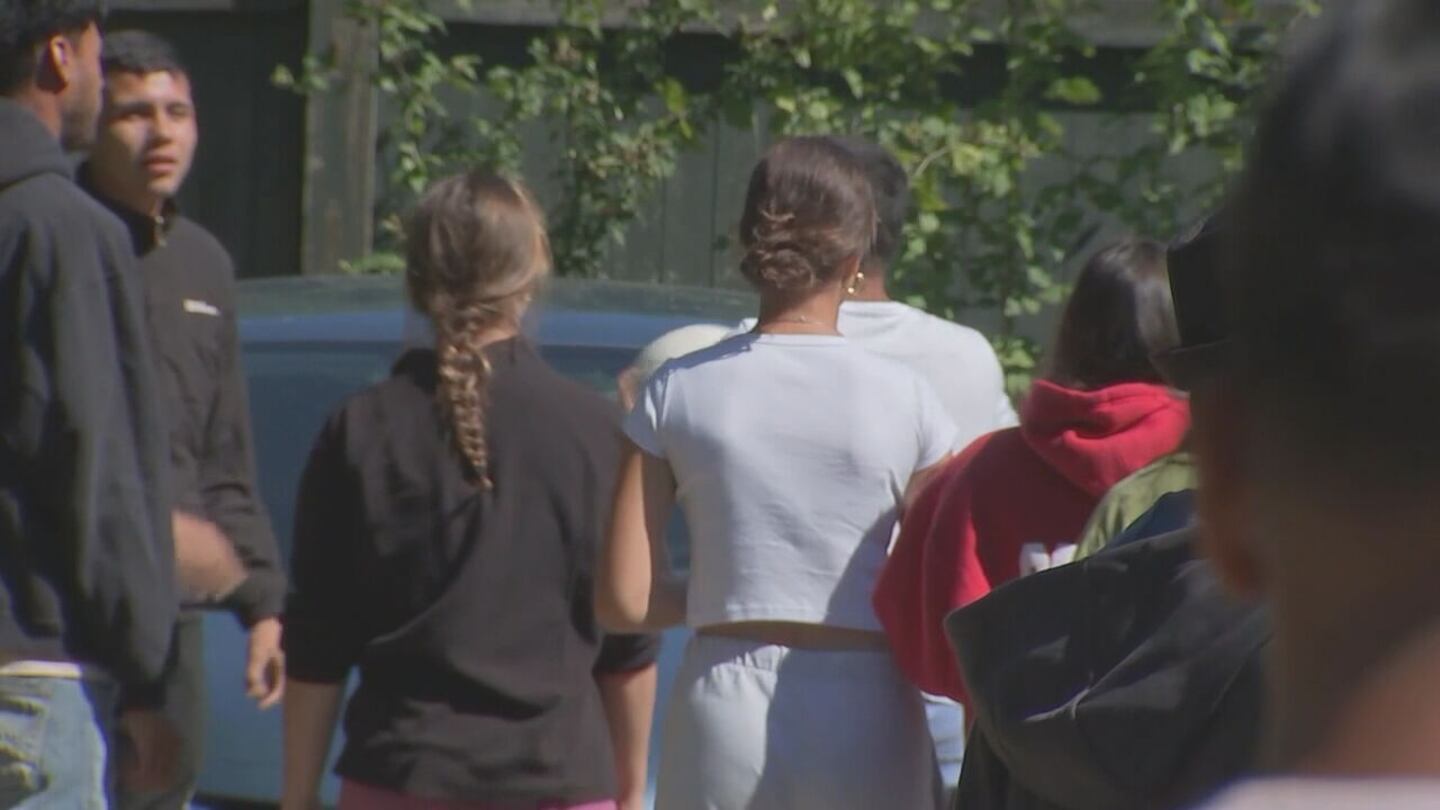BOSTON — Notices to families reaching length-of-stay limits in the state’s emergency shelter system will begin going out in July, amid a migrant crisis in Massachusetts.
Gov. Maura Healey on Wednesday outlined details of a new 9-month length of stay policy for people living in the state’s emergency shelters.
Starting early next month, about 150 families in the state’s Emergency Assistance Family Shelter System will begin receiving notices of the length of stay policy, officials said.
Notices will begin going out on a rolling basis and will not affect all families immediately, officials said.
The notices, which will be made available in multiple languages, will inform families that their shelter benefit is expiring and that they are required to leave shelter within 90 days. As such, the first families in emergency shelters to receive these notices will likely be asked to leave shelter as early as September.
The notices will also inform families whether they are eligible for a first 90-day extension, and how to find out whether they are eligible for a second 90-day extension, Healey said. Healey signed the policy after state legislators passed the measure in late April.
Extension criteria include employment, training program participation, veteran status, disability status, school enrollment, imminent risk of harm due to domestic violence, imminent placement in housing and additional criteria.
Families who have used both extension options or who do not qualify for extensions may re-apply for emergency assistance, officials said.
“I wish the migrants the best of luck,” said Gerard Murphy of Dedham.
Murphy supports the plan to give migrants a deadline on their stay in shelters if they have a place to go.
“Guidelines can be helpful but I want it to be flexible enough that we can find a good home for these folks,” said Murphy.
Agencies like the International Institute of New England that help place migrants say that’s good news.
“That system they’ve implemented today will facilitate exits,” said Jeff Thielman who is President & CEO of the International Institute of New England.
Thielman says the biggest hurdle families face is finding a home in a state where housing is in short supply.
“Finding housing is the big challenge and moving people to places they’re not familiar with is a challenge so we’re trying to move people to parts of the state they may not have lived in before or their shelter may not be located in,” said Thielman.
Some people who live in communities with a shelter tell Boston 25 News they want to be sure that migrants get off to a good start.
“Resources are finite but you don’t want them to boomerang back and cause even more resources to be spent on folks so if they can set them up for success in the 90 days that would be great,” said Murphy.
“This policy is a responsible measure to address the capacity and fiscal constraints of our state’s emergency assistance system,” Healey said in a statement.
“As Congress has repeatedly failed to act on this federal problem, Massachusetts has been going above and beyond – helping thousands of immigrants get work authorizations, jobs and ESOL classes,” Healey said. “We’ve enhanced our workforce development and rehousing programs, which have resulted in a steady increase in families leaving the shelter system in recent months. This new length of stay policy will strengthen those efforts to connect families with the resources and services they need to move into more stable housing and contribute to our workforce. We’re grateful to the Legislature for their partnership.”
In March, state officials announced new requirements for migrants. The state’s Emergency Assistance family shelter system has been operating at capacity for months amid a large influx of migrants to the Bay State.
The Emergency Assistance program is for families with children or pregnant women who are experiencing homelessness, state officials said. Approximately half of families in the state’s Emergency Assistance system are new arrivals to Massachusetts.
Last fall, state officials said that the system could no longer safely or responsibly expand and the state established a waiting list. Families who qualify for Emergency Assistance and are on the waiting list are eligible to stay at the state’s “safety-net sites.”
Last year, Healey announced the system reached capacity at 7,500 families.
The state has appropriated $10 million for workforce training programs to assist residents in the state’s emergency shelter system. The Department of Revenue has also issued guidance on Wednesday on the administration of a Temporary Authorized Training Tax Credit for businesses and corporations that provide training to residents of the state’s emergency assistance shelters.
Healey said her office has prioritized work authorizations, job training and placement, English as a second language classes, and rehousing assistance to help families leave emergency assistance sites for more stable housing.
Since November 2023, the state has helped 3,716 immigrants apply for work authorizations, and it is expected the vast majority have been approved, Healey said. Overall, 1,114 emergency assistance program residents have gotten jobs in the past few months.
The number of families leaving the state’s emergency shelter system has steadily increased each month, with more than 331 families leaving in May, officials said.
This is a developing story. Check back for updates as more information becomes available.
Download the FREE Boston 25 News app for breaking news alerts.
Follow Boston 25 News on Facebook and Twitter. | Watch Boston 25 News NOW
©2024 Cox Media Group











